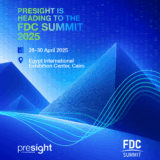In today’s interconnected world, the power of big data has the potential to positively shape international relations and foster collaboration between nations. As we face shared challenges such as climate change, health crises, and migration issues, data can play a crucial role in informing diplomatic efforts and foreign policy decisions.
Data sharing can be a powerful tool for collaboration between nations. By pooling resources, and sharing data on common challenges such as climate change or health crises, countries can not only gain better insight into issues, but also leverage the data for commonly agreed metrics of progress. Shared knowledge can lead to more effective policy-making, coordinated responses, and the development of innovative solutions. Data-driven collaboration can transcend borders and foster a sense of global unity in addressing pressing global issues. By sharing climate data, nations can work together to develop sustainable policies, set targets, and monitor progress.

Climate change is a global challenge that requires collective action and obviously a focus in the UAE as hosts to COP28 in November this year. Big data analytics can provide valuable insights into climate patterns, greenhouse gas emissions, and the impact of human activities on the environment. The United Nations finalised its framework for climate change statistics in March 2022, with the aim of helping countries compile their own climate change data in order to strengthen their ability to monitor climate change impact, adaptation and mitigation actions and share those statistics. Another resource is Microsoft’s Planetary Computer, a resource that combines a multi-petabyte catalogue of global environmental data with APIs and other tools to enable scientists explore the data for their work.
In the face of health crises, such as pandemics or the spread of infectious diseases, data-driven diplomacy can be a game changer, as seen during Covid, when government health organisations, researchers and healthcare providers collaborated on many different data programs. Cloud computing enabled researchers to share large sets of data and work collaboratively on them in unprecedented ways These programs, from both public and private sector included everything from studying the genome of the virus, to monitoring the spread of new variants, to collecting data on possible side effects of vaccines.
Presight was closely involved in the UAE’s data-led response to the Covid pandemic and provided learnings and aid from which many other nations could benefit. In the future, real-time data sharing can help to coordinate response to disease outbreaks, but also be used to develop effective prevention strategies, allocate resources efficiently, and accelerate the development of vaccines and treatments. Data-driven diplomacy in the health sector can save lives and strengthen global health security.
The importance of data sharing to trade is well recognised. Data-driven insights can play a significant role in soft diplomacy, which focuses on building relationships and trust between nations. By sharing data on trade, economic indicators, and market trends, countries can foster economic cooperation and enhance bilateral relations. Platforms like Dubai Pulse, which was founded by Dubai Digital in 2017, shares different data sets from the city for entrepreneurs and trade partners. Presight’s own work with the Abu Dhabi Export Agency (ADEX), empowers foreign investors with relevant data. By leveraging data, nations can build economic partnerships based on transparency, trust, and mutual benefit.
While data diplomacy holds immense potential, it is crucial to address ethical considerations and data privacy. Nations must ensure that data sharing is conducted in a responsible and secure manner, respecting individuals’ and countries’ privacy rights and protecting sensitive information. International agreements and frameworks should be established to govern data sharing practices, ensuring that data is used for the common good and not for malicious purposes. Transparency and accountability should be at the core of data diplomacy efforts to build trust and maintain ethical standards.
Data diplomacy has the power to positively shape international relations and foster collaboration between nations. By sharing data and utilising data-driven insights, countries can address shared challenges such as climate change, health crises, and economic cooperation. Data-driven diplomacy can facilitate coordinated responses, inform policy-making, and enhance global cooperation. However, it is essential to prioritise ethical considerations and data privacy to ensure responsible data sharing practices. As we embrace the potential of big data in international relations, let us work together to build a future where data-driven diplomacy contributes to the lifelong advancement of humankind.
The writer is the Chief Executive Officer of Presight





















